Pancreatic cancer symptoms
The main signs and symptoms of pancreatic cancer
If you have persistent or worsening symptoms that are not usual for you, then you should visit your GP or call NHS 111 to investigate.
We may all experience these symptoms from time to time but what is important is the combination of symptoms we experience. If you are experiencing a variety of these symptoms simultaneously, it is important to relay this to your GP or health professional to reinforce why you are concerned about pancreatic cancer.
You may not have all these symptoms and they may come and go, varying in severity.
Click on each of these pancreatic cancer symptoms to learn more about them.
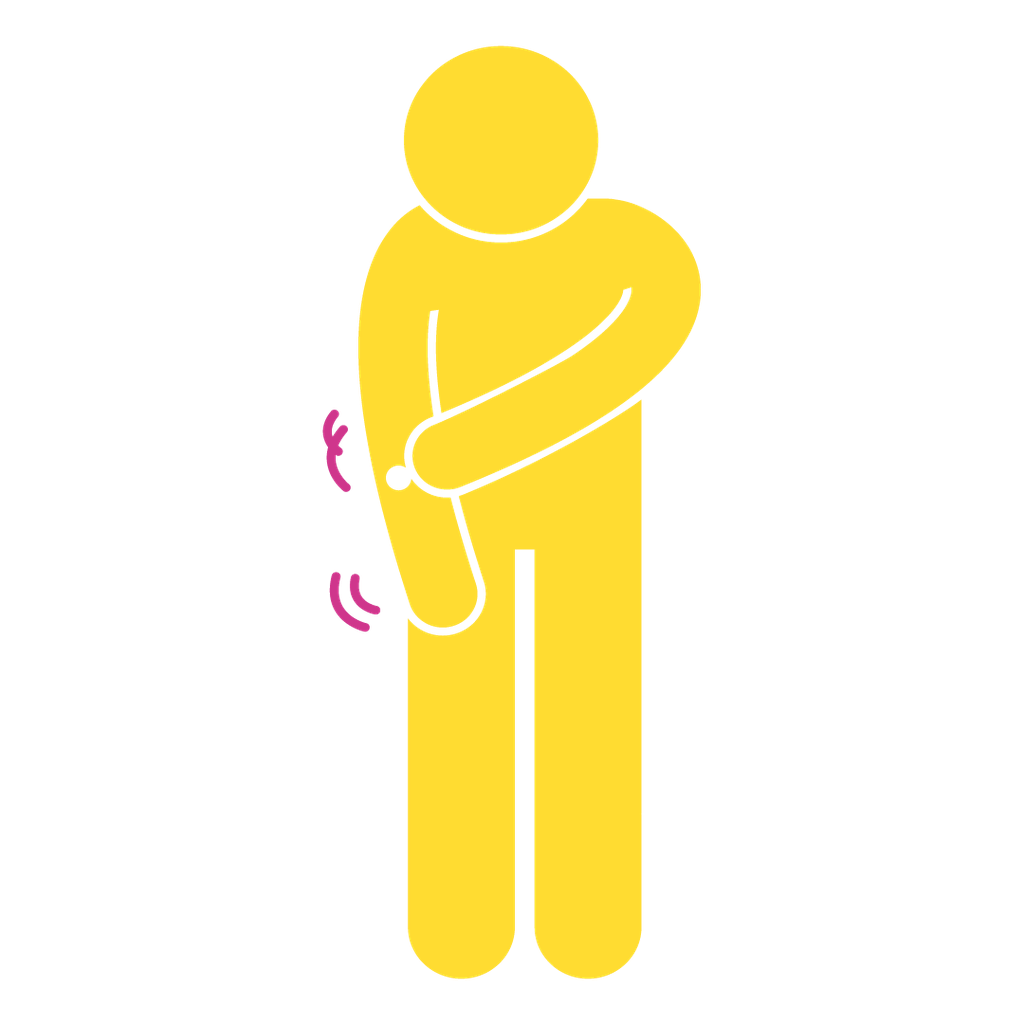
Jaundice
Yellowing of the skin and whites of the eyes, and/or very itchy skin.
Jaundice is common in people with pancreatic cancer. It develops when the bile duct becomes blocked by the tumour and …
Read more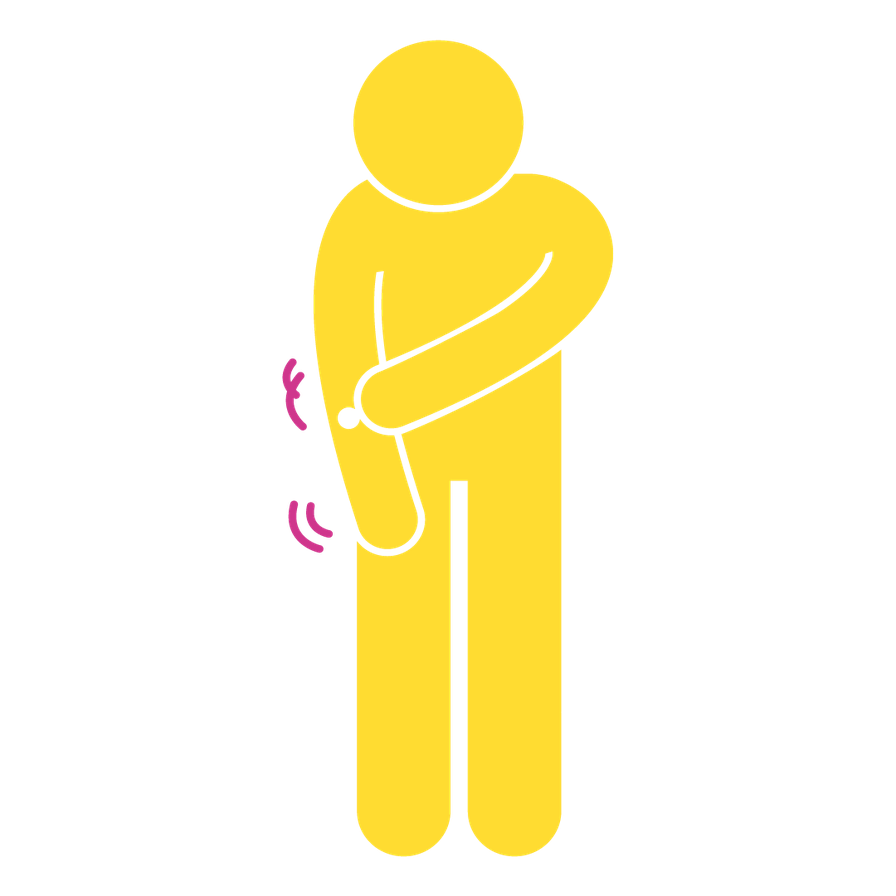
Jaundice
Yellowing of the skin and whites of the eyes, and/or very itchy skin.
Jaundice is common in people with pancreatic cancer. It develops when the bile duct becomes blocked by the tumour and yellow pigment (bilirubin) that is normally excreted (passed) builds up in the body. Jaundice may be painless, but it can be very itchy and irritating. It can also make the skin feel hot and uncomfortable leading to itchiness; this is called pruritis. Jaundice can also cause nausea and vomiting as well as digestive problems and tiredness.
How do I know I have this?
The most obvious sign is yellowing of the skin and whites of the eyes: Jaundice may also cause your urine to be dark yellow and/or itching of the skin. You should seek urgent medical advice if you are worried that you have the signs of jaundice. You will need to be referred for tests to identify the cause. NICE (The National Institute for Health and Care Excellence) guidelines suggest that anyone with jaundice should be investigated further.
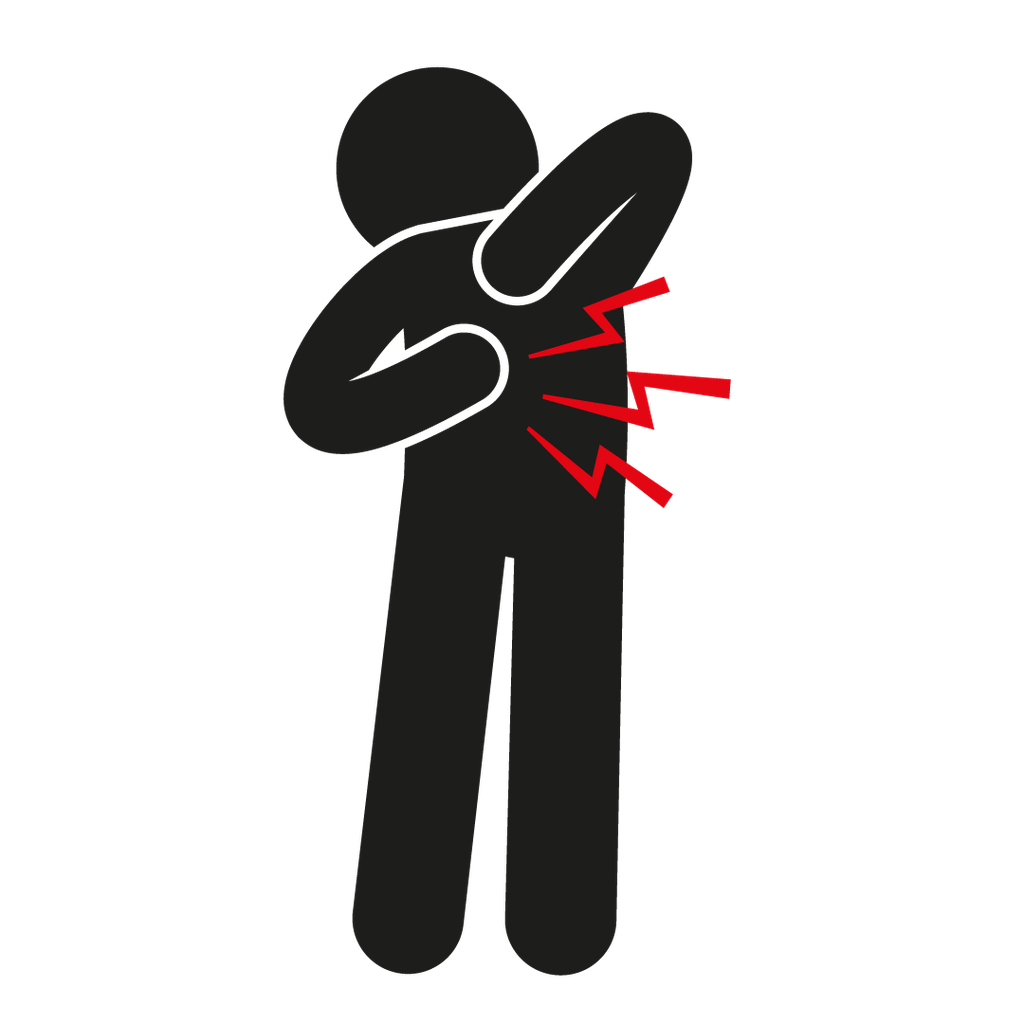
Mid back pain or discomfort
Where a bra strap would sit and may be eased by leaning forward.
Mid-back pain or discomfort can be a symptom of pancreatic cancer. What is it? • Mid-back pain can be a …
Read more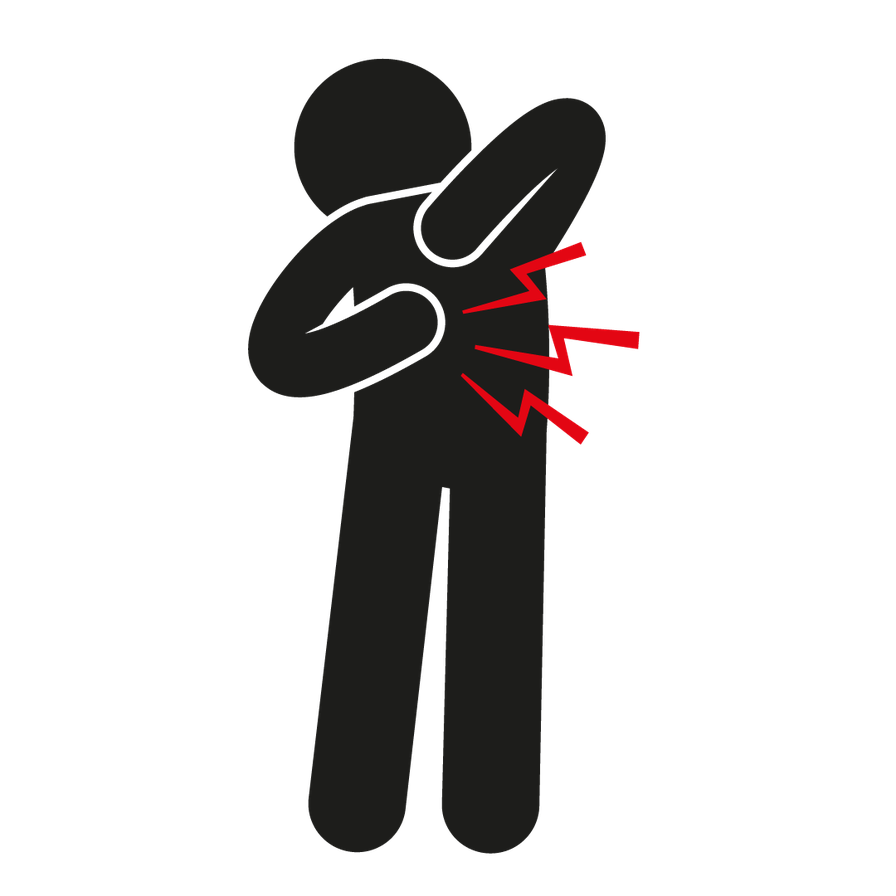
Mid back pain or discomfort
Where a bra strap would sit and may be eased by leaning forward.
Mid-back pain or discomfort can be a symptom of pancreatic cancer.
What is it?
• Mid-back pain can be a sign and symptom of pancreatic cancer. The pain can be caused by a tumour invading nerves or organs that lie near the pancreas.
• Some people also report that they feel pain in their shoulder or under their shoulder blade. Other people feel pain in their back and abdomen (tummy) at the same time.
How do I know if I have this?
• Back pain is experienced by many people in the population and having mid-back pain does not mean you have pancreatic cancer. However, if you are experiencing mid-back pain (in the region just below your shoulder blades) that is not normal for you, there is no harm in checking with your GP – especially if you are experiencing any of the other pancreatic cancer symptoms described here.
What should I do if I am experiencing upper abdominal pain or discomfort?
• If you regularly experience one or more of the symptoms of pancreatic cancer which are not normal for you, do not ignore them, contact your GP straight away or call NHS 111 to investigate.
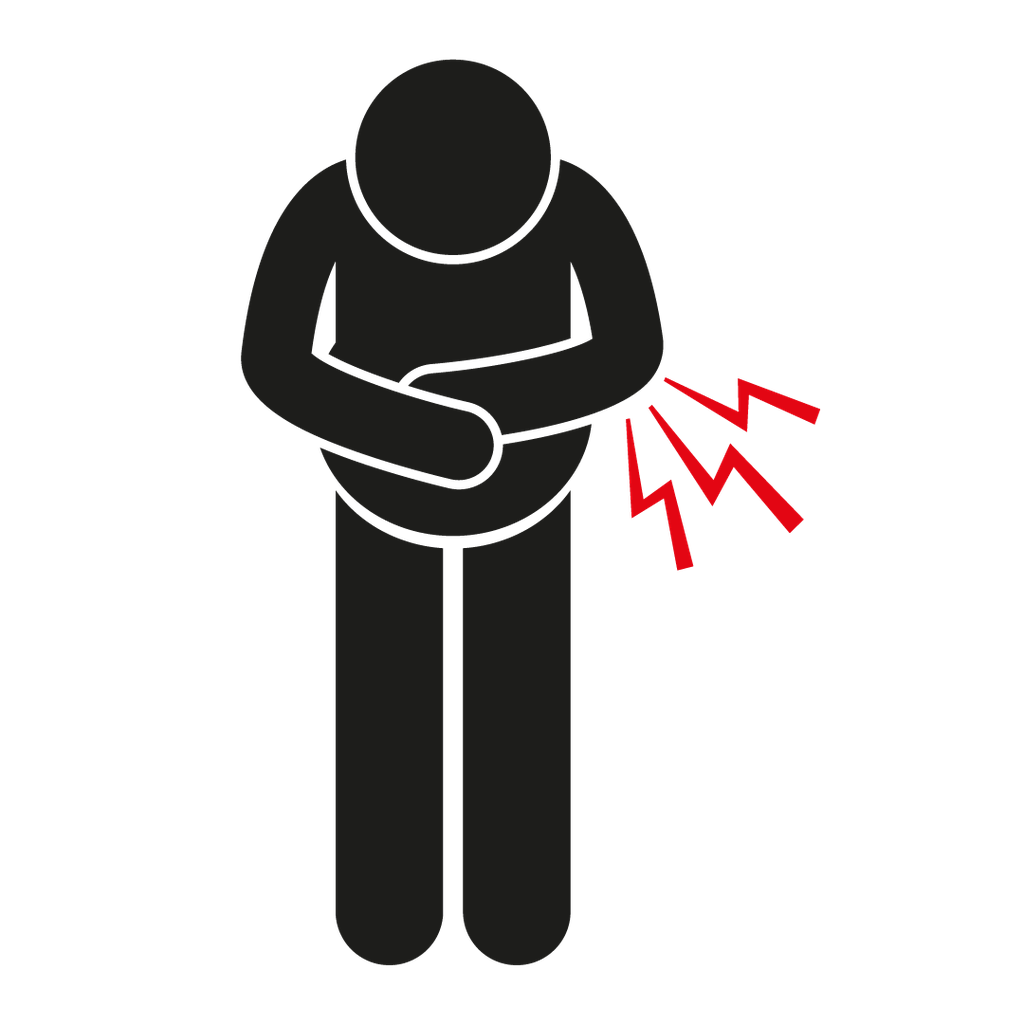
Upper abdominal pain or discomfort
Which may radiate to the back.
Upper abdominal pain (or discomfort) can be a symptom of pancreatic cancer. What is it? • Abdominal (tummy) pain or …
Read more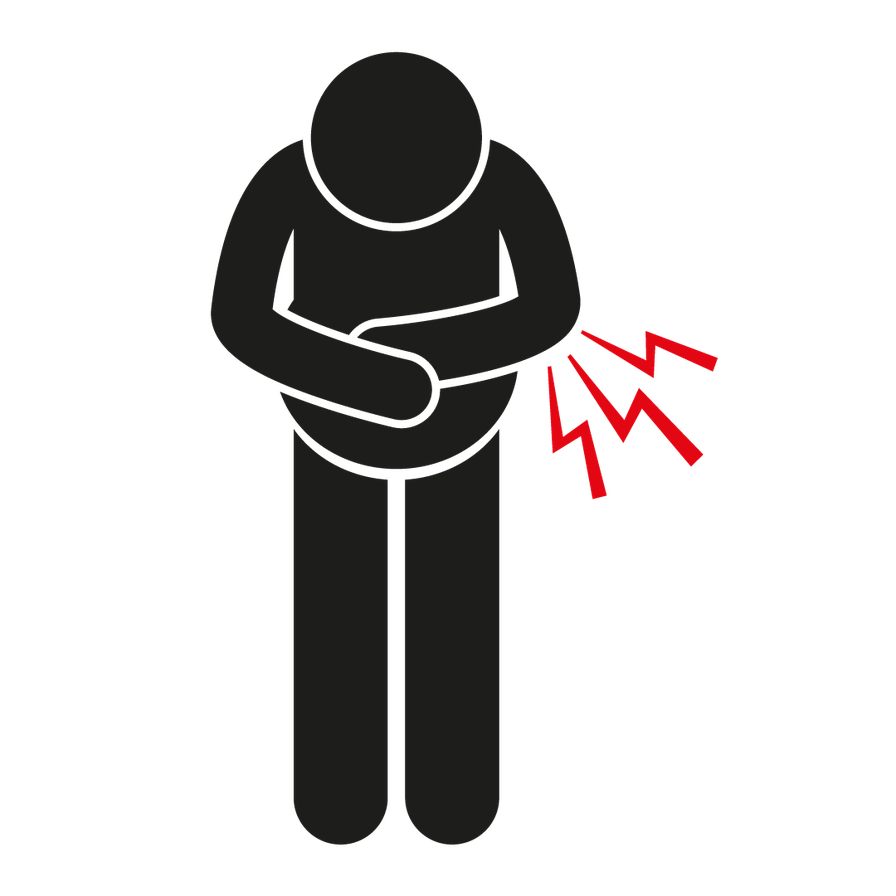
Upper abdominal pain or discomfort
Which may radiate to the back.
Upper abdominal pain (or discomfort) can be a symptom of pancreatic cancer.
What is it?
• Abdominal (tummy) pain or discomfort is one of the most common symptoms and one of the first symptoms to often present itself.
• The pain or discomfort can be caused by the tumour invading nerves or organs that lie near the pancreas. The pain or discomfort is usually felt above the belly button and below the breast area (called the epigastric region), however, some patients report they have pain and discomfort without a specific location.
How do I know if I have this?
• Having tummy pain or discomfort is a common symptom for many diseases and does not mean you have pancreatic cancer. However, if this is new and unusual for you or combined with other symptoms you should visit your GP to check.
What should I do if I am experiencing upper abdominal pain or discomfort?
• If you regularly experience one or more of the symptoms of pancreatic cancer which are not normal for you, do not ignore them, contact your GP straight away or call NHS 111 to investigate.
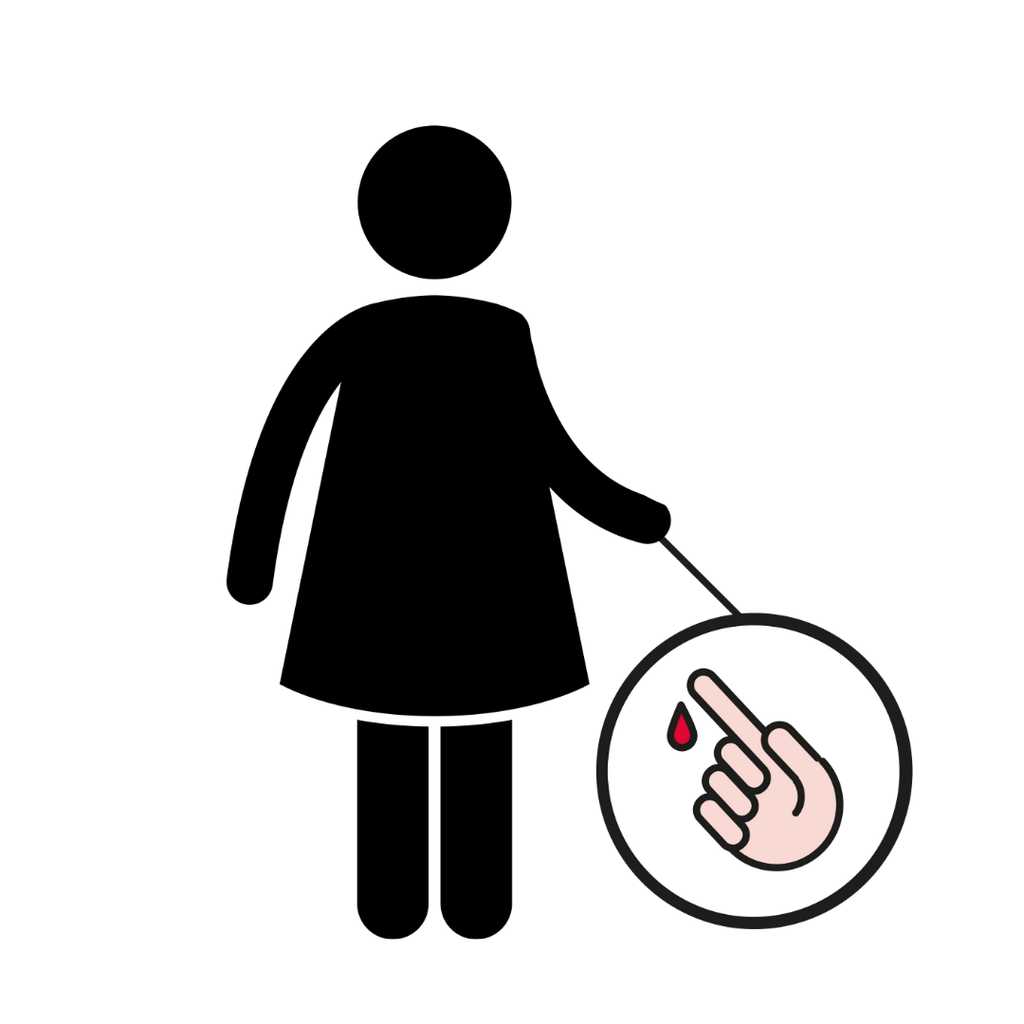
Diabetes
Research shows that new-onset diabetes occurs in up to 30% of pancreatic cancer patients.
Type 2 diabetes is a symptom of pancreatic cancer, especially for those with a low or reducing BMI. Research shows …
Read more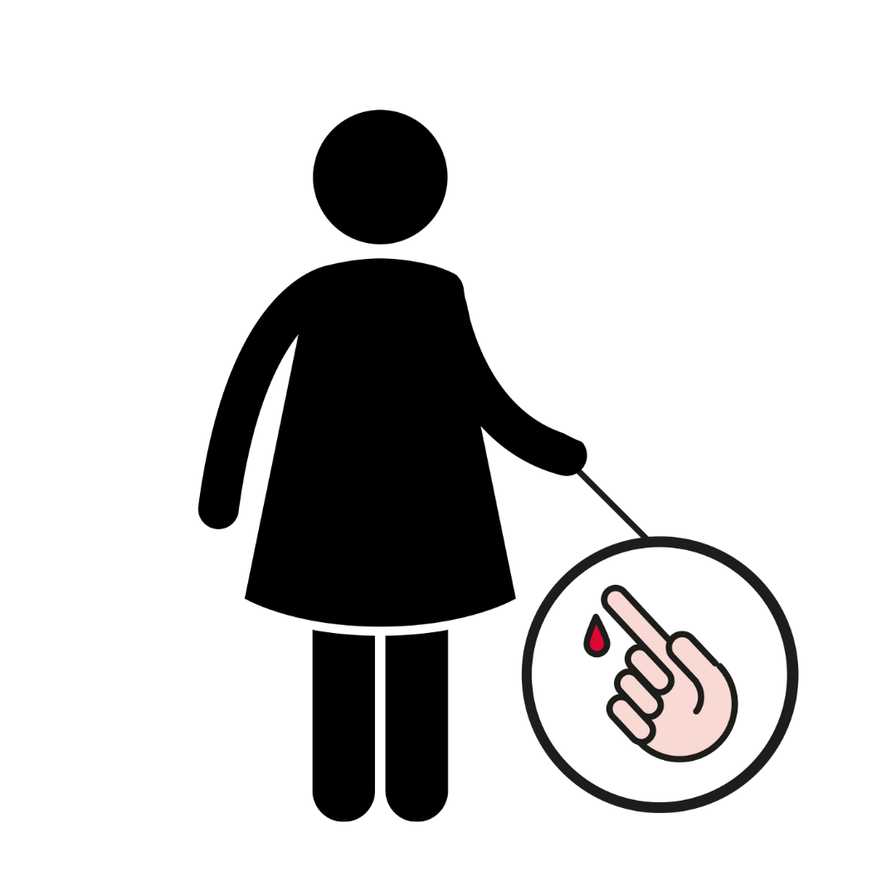
Diabetes
Research shows that new-onset diabetes occurs in up to 30% of pancreatic cancer patients.
Type 2 diabetes is a symptom of pancreatic cancer, especially for those with a low or reducing BMI.
Research shows that new-onset diabetes has been identified to occur in up to 30% of pancreatic cancer patients and is something that can be detected in the presymptomatic phase.
In some cases, this can be up to two years before the cancer is discovered.
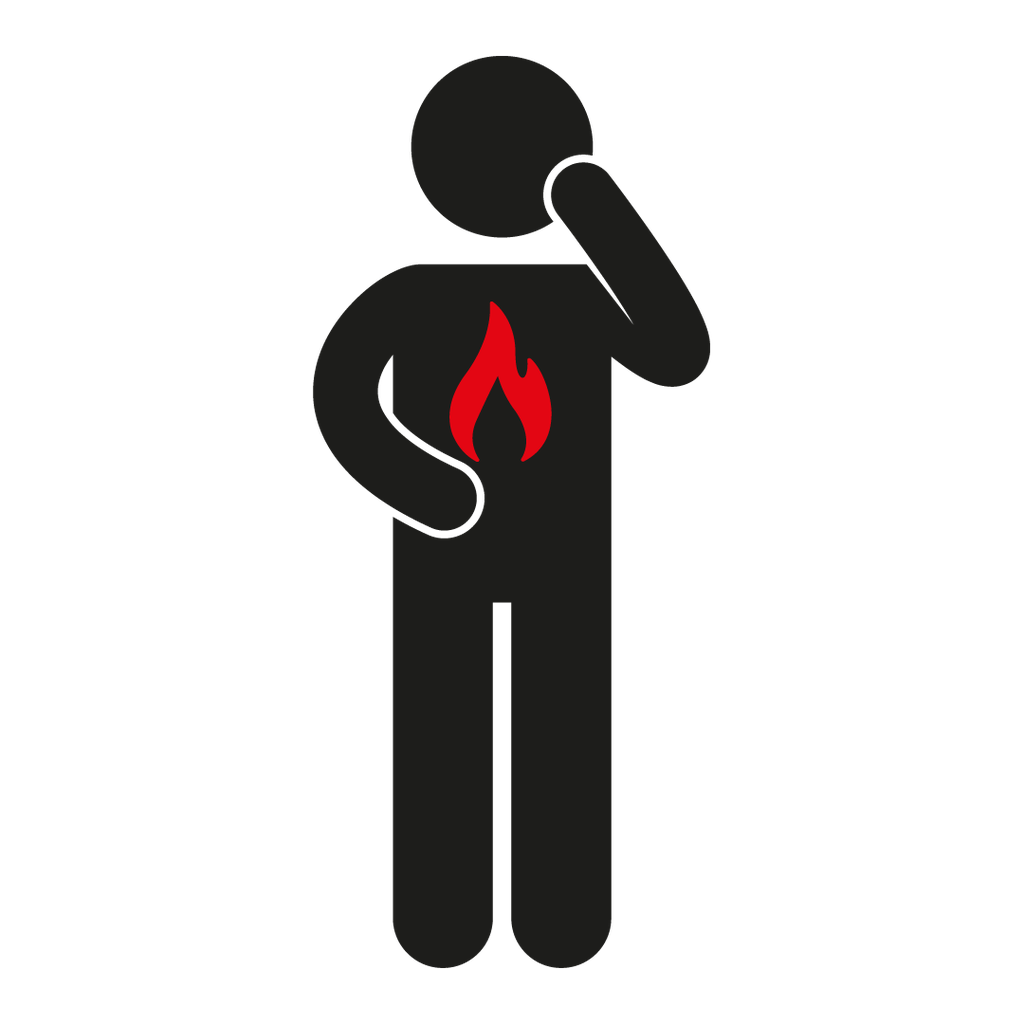
Indigestion
Not responding to medication.
After you eat or drink you may feel a burning or uncomfortable feeling in your chest. This may be accompanied …
Read more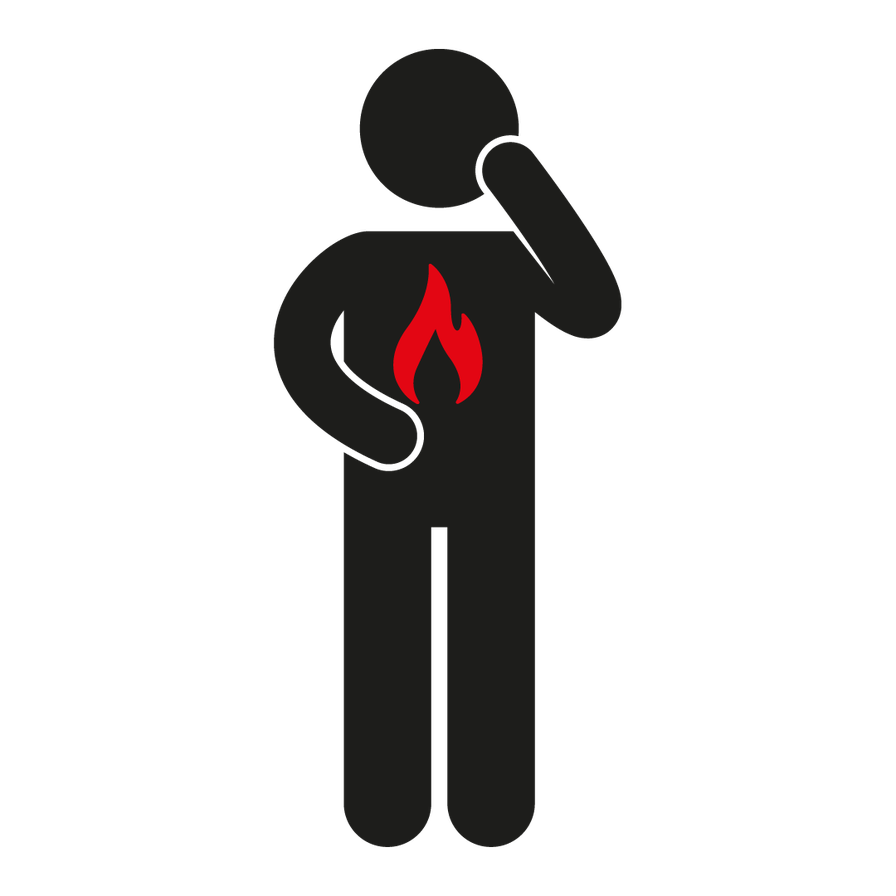
Indigestion
Not responding to medication.
After you eat or drink you may feel a burning or uncomfortable feeling in your chest. This may be accompanied by feeling or being sick or you may feel bloated and repeatedly burp or pass wind. Most people experience this from time to time and it is not something to worry about. However, if indigestion continues despite treatment from a pharmacy or your GP it could be a sign of pancreatic cancer.
The above symptoms are signs of indigestion. If you keep having this, and it is unusual for you or you are experiencing it alongside other symptoms described here, discuss this with your GP. If treatments for indigestion are not working, it is also important to discuss this with your doctor.
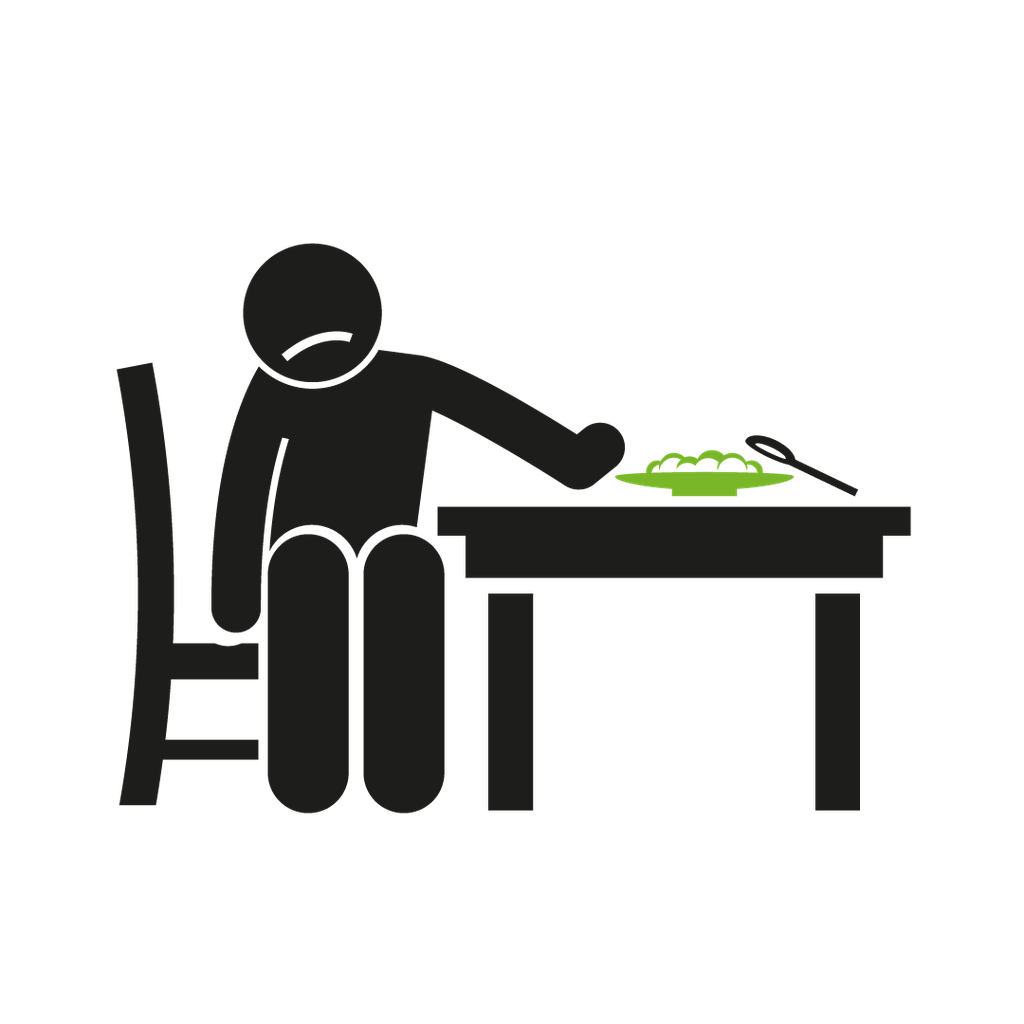
Loss of appetite
Not feeling like eating.
This is when you don’t really feel like eating, or you feel full after eating only a very small amount …
Read more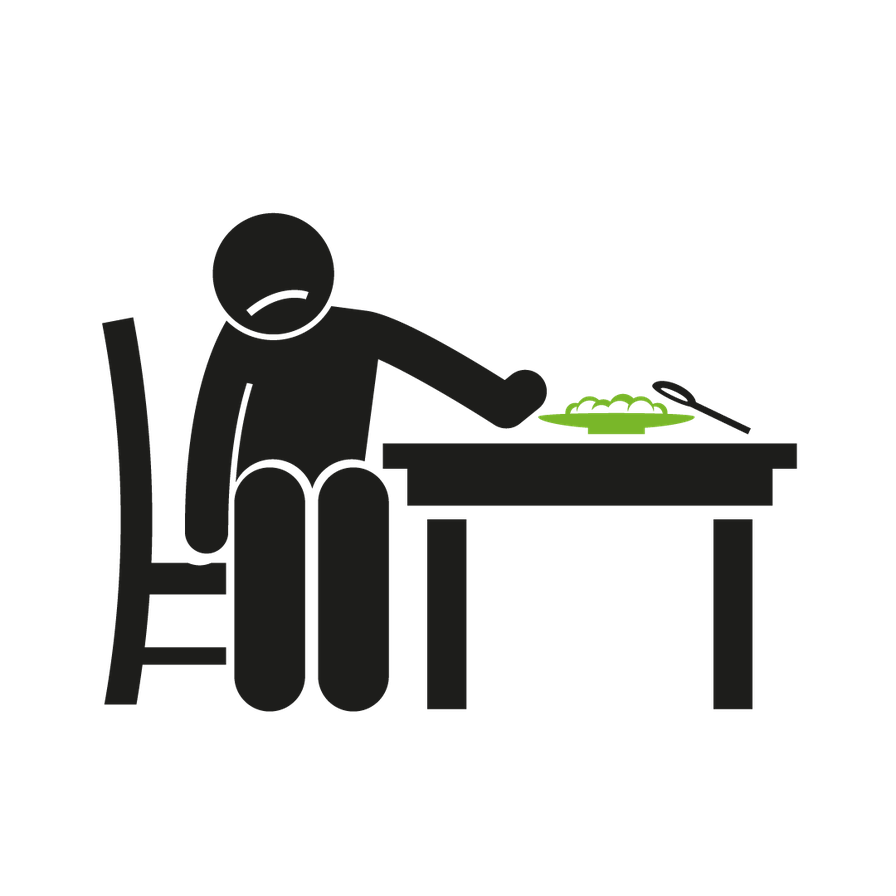
Loss of appetite
Not feeling like eating.
This is when you don’t really feel like eating, or you feel full after eating only a very small amount of food.
Loss of appetite does not mean you have pancreatic cancer; it is a common symptom of many diseases. Many of the symptoms of pancreatic cancer can cause loss of appetite. But these are often not due to cancer. For example, constipation, weight loss or vomiting and diarrhoea. However, if you experience this, together with any of these other symptoms, it is worth going to your GP to try to find out the cause.
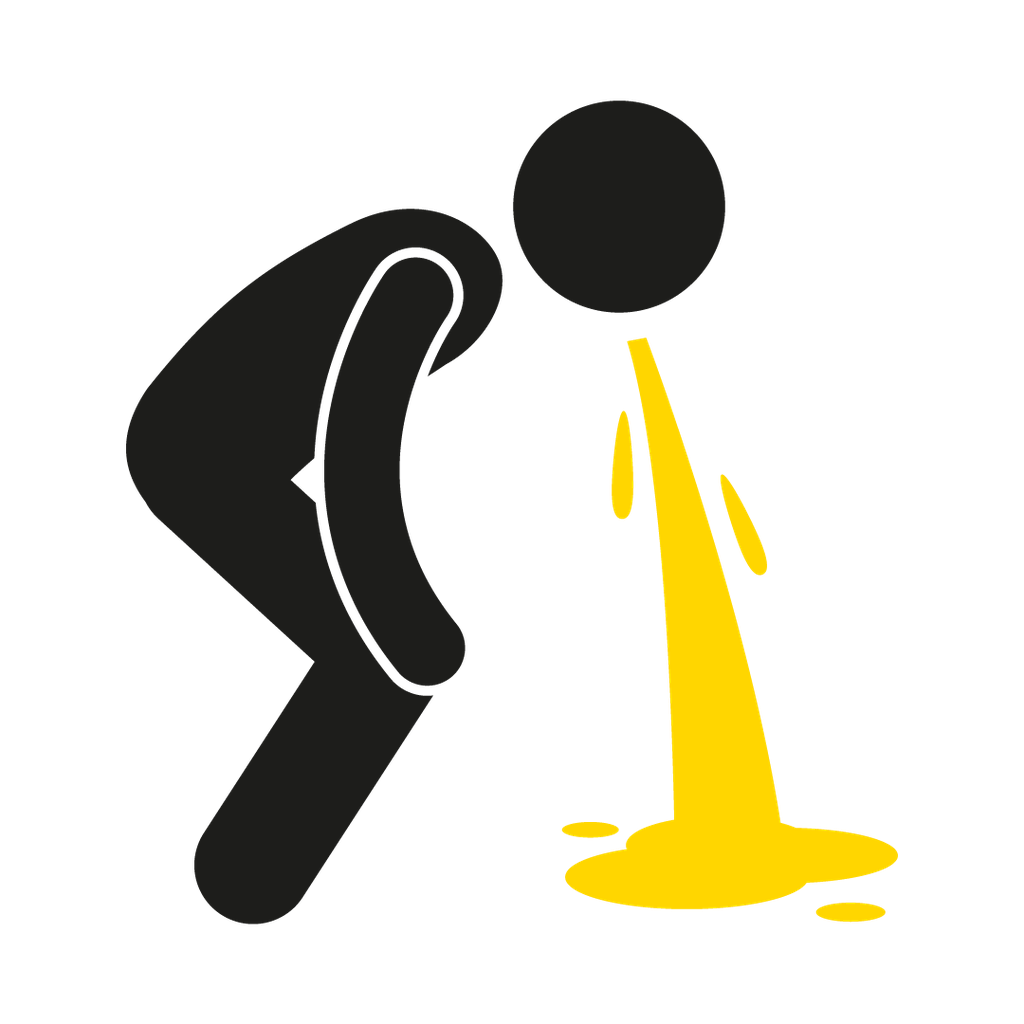
Nausea and vomiting
Feeling and being sick.
Nausea (feeling sick) is when you feel uneasy, discomfort and disgust towards food like your stomach is churning. Sometimes you …
Read more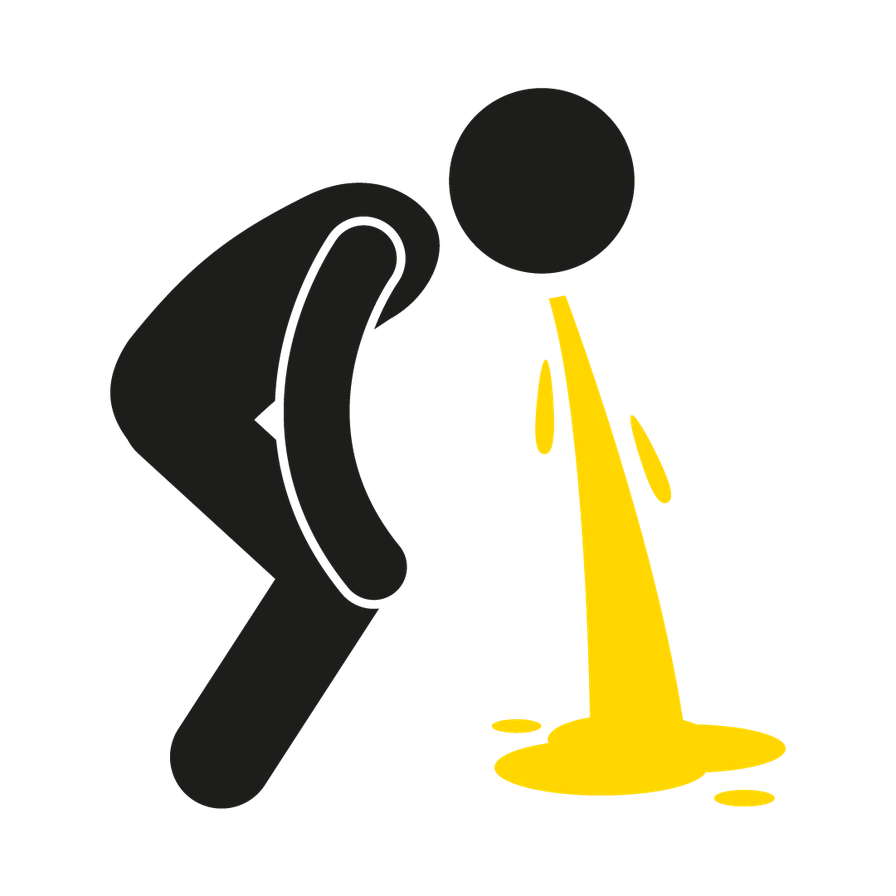
Nausea and vomiting
Feeling and being sick.
Nausea (feeling sick) is when you feel uneasy, discomfort and disgust towards food like your stomach is churning. Sometimes you can also have a mild headache feeling. Vomiting is when you uncontrollably release the contents of your stomach out of your mouth. Often these symptoms will pass in a few days and are not anything to worry about.
If this is not normal for you and keeps happening, this may be something to start being aware of and monitor. Using our symptoms diary may be helpful and you can show this to your GP.

Change in bowel habit
A change in the way you poo.
A change in the way you poo may be a symptom of pancreatic cancer. What is it? • People with …
Read more
Change in bowel habit
A change in the way you poo.
A change in the way you poo may be a symptom of pancreatic cancer.
What is it?
• People with pancreatic cancer sometimes experience constipation (when your stools are very firm and difficult to push out, sometimes accompanied by stomach pain) or diarrhoea (passing of watery stools more than 3 times a day).
• Stools can also be large, pale, smelly and float. This is because there is too much fat in the stool as food is not digested properly.
How do I know if I have this?
• Constipation and diarrhoea are quite common. However, if a change in your bowels keeps happening or lasts longer than a week, discuss this with your GP.
• It does not mean you have pancreatic cancer and your GP may be able to resolve your symptoms easily.
What should I do if I am experiencing upper abdominal pain or discomfort?
• If you regularly experience one or more of the symptoms of pancreatic cancer which are not normal for you, do not ignore them, contact your GP straight away or call NHS 111 to investigate.

Fatigue
Feeling tired.
This is when you feel very tired or exhausted most, if not all, of the time. This can be described …
Read more
Fatigue
Feeling tired.
This is when you feel very tired or exhausted most, if not all, of the time. This can be described as a lack of energy and motivation (physical and mental). It also does not go away with sleep, and people describe it as different to tiredness they have experienced before.
Fatigue can be a consequence of many medical conditions, such as depression, as well as cancer. Fatigue can also range in its severity. If your fatigue is not normal for you and is not being caused by a stressful or upsetting period in your life this may be a sign of cancer, and you may wish to discuss this with your GP.
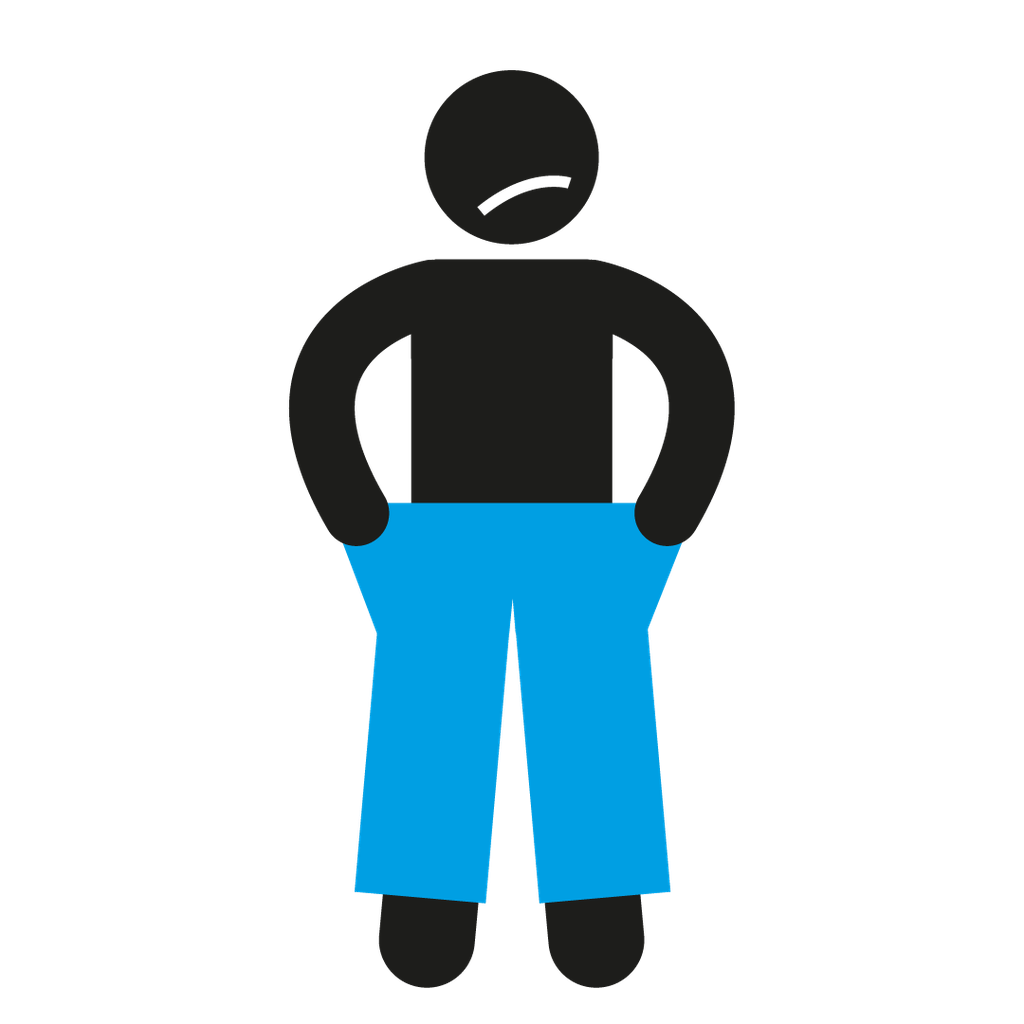
Unexplained weight loss
Weight loss without trying.
This is often one of the first problems patients tell their doctors about. Losing weight is cause for concern if …
Read more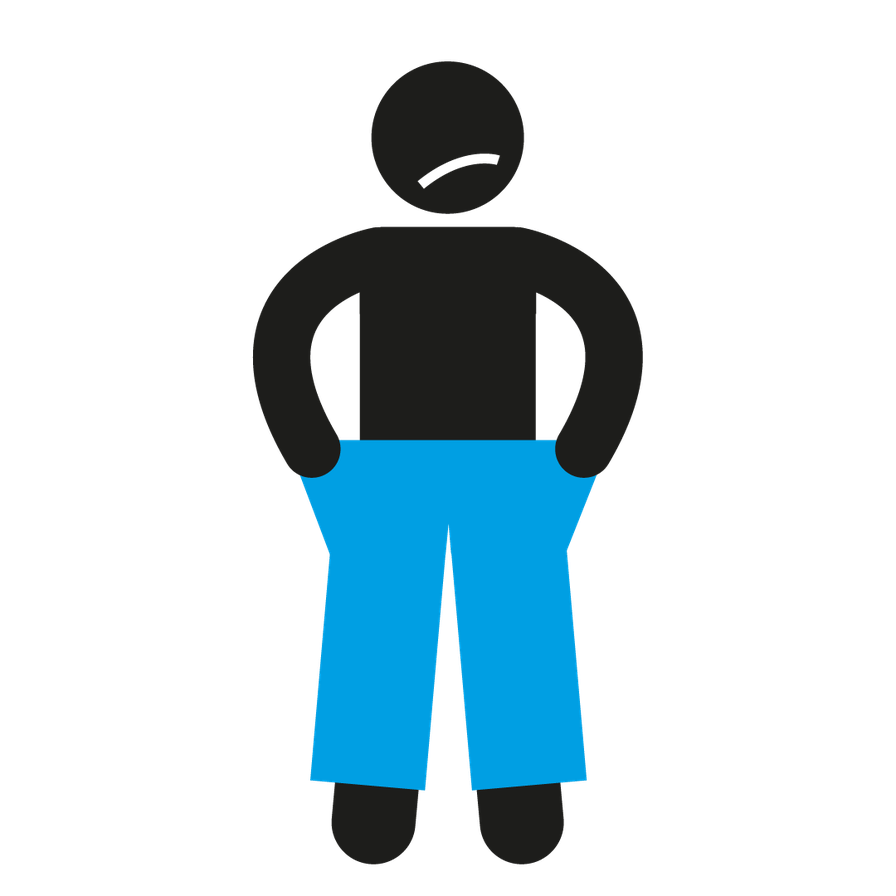
Unexplained weight loss
Weight loss without trying.
This is often one of the first problems patients tell their doctors about. Losing weight is cause for concern if it was unintentional or you do not know why it has happened. The unexpected weight loss associated with pancreatic cancer can occur without any pain or apparent change in digestion. You may have a good appetite but still be losing weight.
How do I know if I have this?
You may be able to tell if you have lost weight without weighing yourself on scales. If clothing or jewellery feels loose or people comment on your weight loss. Unexpected weight loss can be a sign of several diseases, so you should see your GP to investigate why this is happening to you. Guidelines suggest that those over 60 with weight loss and any of the following should be sent for a CT scan:
• Diarrhoea
• Back pain
• Abdominal pain
• Nausea
• Vomiting
• Constipation
• Diabetes that has developed recently
If this applies to you, it is important you see your GP to investigate the cause.

Concerned
We’re here to help. Find out about pancreatic cancer, it’s symptoms, risks and other useful information.
Read more
Diagnosed
Receiving a diagnosis can be worrying. We can guide you through the disease, it’s treatments and the next steps.
Read more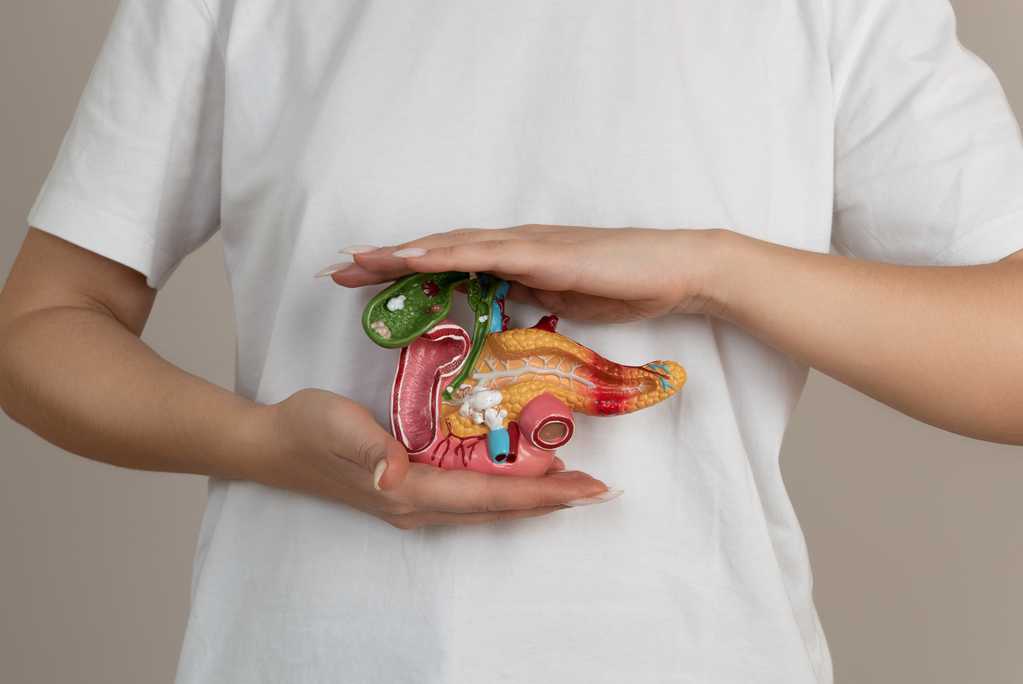
Pancreatic cancer
Helpful sources and advice for you or someone you care for, maximising quality of life and end of life planning.
Read moreView all of our patient information booklets online
We have listened to patients, relatives and carers and understand what information is useful. Our patient information booklets surrounding pancreatic cancer are easy to understand and ideal to have at hand to answer questions you may have.
Read more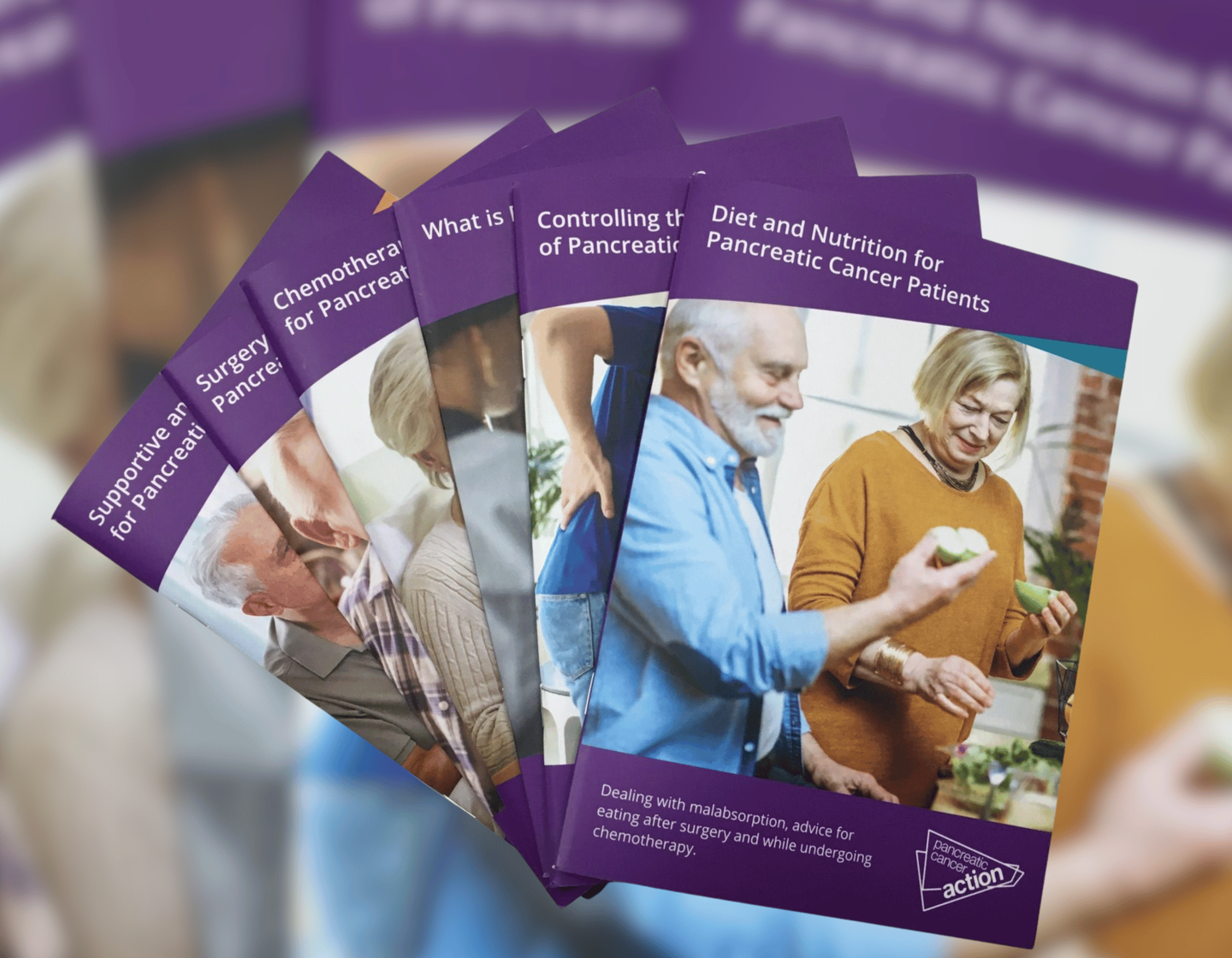
Symptoms diary
If you are having symptoms you feel might be pancreatic cancer and you are worried, this diary could help you to talk to your doctor. You can view and download it online.
Read our symptoms diary
The information provided in this site, or through links to other websites, is not a substitute for medical or professional care and should not be relied upon as such. Read our disclaimer.
Sources and references for this information product will be supplied on request. Please contact us quoting the Information Product number below:

- Information Product No: PCA0011v2
- Published: 12 Jul 2022
- Last updated: 27 Aug 2024
- Next Review Due: 20 Feb 2027



